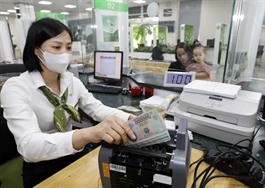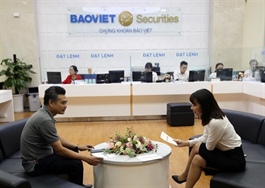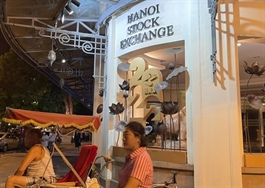Vietnamese stock regulator evaluates algorithmic and robotic trading
Vietnamese stock regulator evaluates algorithmic and robotic trading
The adoption of algorithms, bots, and high-frequency orders for online stock trading are now under scrutiny by Vietnamese regulators.

On September 12, the SSC called on securities firms to carefully assess and halt the deployment of robotic tools to execute high-frequency online stock trades.
The rationale behind this move is that while integrating technology into finance is a global trend, boosting liquidity and benefiting the markets, it needs careful consideration in the context of Vietnam.
Representatives from the SSC have openly supported and encouraged securities businesses to leverage technological advancements, be they for developing new products or diversifying their business models.
“However, any innovation or new applications in this domain must ensure compliance with legal standards, transparency, fairness, and most importantly, be suitable for the Vietnamese market landscape,” the SSC noted.
Historically, the trading system of the Ho Chi Minh Stock Exchange (HSX) has experienced bottlenecks due to rapidly increasing order volumes, surpassing the system's processing threshold. However, technical solutions have been implemented in recent years to ensure seamless market operations.
Nevertheless, the watchdog's supervisory activities have noted an emerging trend where technology is used to place orders at a very high frequency. Such activities harbour potential risks and could destabilise the market.
This proactive measure aims to ensure market smoothness and security, preventing unintended negative impacts and safeguarding investors' collective interests.
Interestingly, the use of algorithms, bots, and high-frequency orders has been trialled or adopted in several global stock markets. The decision to apply these technologies or not depends on the legal environment and the technological infrastructure of each stock market.
For Vietnam, the SSC and related agencies are diligently researching and evaluating algorithmic, robotic, and high-frequency trading. They are taking a holistic view, considering the legal norms, the technological status quo of the market, and the infrastructure of individual securities companies.
The primary objective of the regulator, as reiterated by the SSC’s leaders, is to manage market operations within the bounds of the law, ensuring liquidity, transparency, stability, fairness, and most vitally, clarity.
“All solutions, be they services or new products, are encouraged, but they must be tailored to the market's specific conditions. Above all, they should prioritise the collective objectives of the market and the interests of its majority stakeholders, including securities firms, listing and trading registration organisations, and investors,” the SSC said.
























